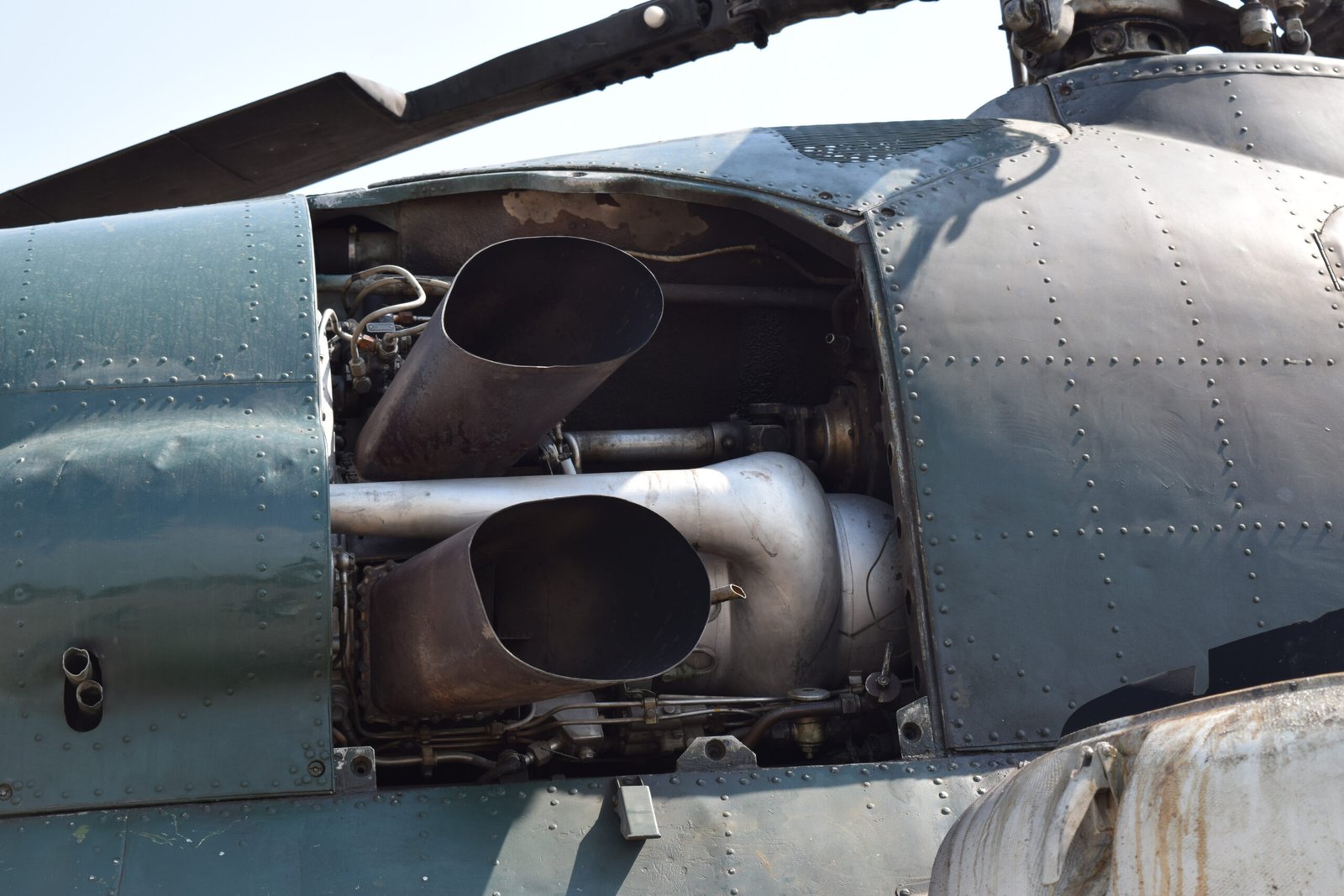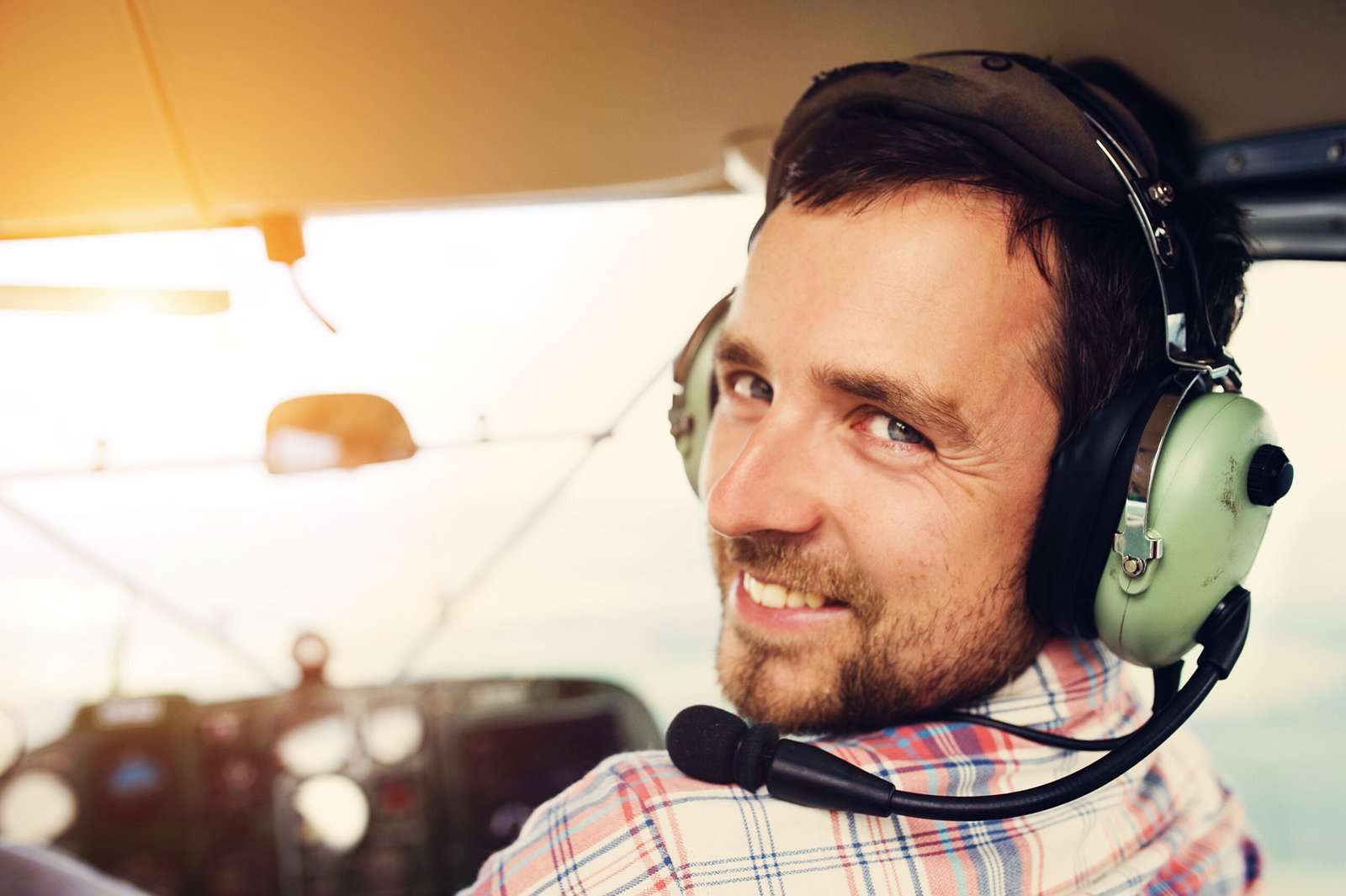aviation blogs
Aviation Innovations: How Drones Are Revolutionizing Delivery Systems
In an age where speed and efficiency reign supreme, the aviation industry is undergoing a transformation that promises to redefine logistics. At the forefront of this change is drone technology, ushering in a new era of delivery systems that are not only faster but also more sustainable. As we delve into this revolution, it’s crucial to understand the interplay between aviation training and the burgeoning world of drones.
To begin with, proper training remains paramount in ensuring safety and effectiveness within aviation. The advent of sophisticated flight simulators has made it easier for aspiring pilots and drone operators to hone their skills without ever leaving the ground. These simulations provide realistic environments that replicate various conditions pilots might face, from turbulent weather to emergency scenarios. This immersive experience fosters better decision-making skills while minimizing risks associated with traditional flight training.

For anyone looking to stay updated on aviation trends or seeking valuable resources, the internet offers a wealth of information through dedicated blogs and websites. Some notable mentions include Aviation Week Network, which covers everything from aerospace technology to defense; Flying Magazine, renowned for its insightful articles on pilot experiences; and The Drone Girl blog which focuses specifically on drone innovations. Social media platforms like Twitter and Instagram also serve as vibrant hubs for aviation enthusiasts. Follow hashtags such as #DroneDelivery or #AviationNews for real-time updates from industry experts and hobbyists alike.
Moreover, educational opportunities abound for those eager to explore careers in aviation or deepen their knowledge about drones. Numerous online courses cater to both novice learners and seasoned professionals looking to enhance their skills. Websites like Coursera or Udemy offer specialized programs ranging from basic piloting techniques to advanced UAV operations—perfectly blending theoretical knowledge with practical application.
Ground schools play an essential role too, providing structured learning environments where students can gain foundational knowledge before stepping into aircraft cockpits or controlling drones. These institutions cover critical areas such as air traffic regulations, navigation principles, meteorology, and more—ensuring that future aviators are well-prepared for any challenge they might encounter.
As demand grows for unmanned aerial vehicles (UAVs), so do job opportunities within this exciting sector. Drone pilots are increasingly sought after in industries ranging from agriculture to real estate photography and package delivery services. Companies are leveraging UAVs not only for their speed but also for their ability to access hard-to-reach areas safely and cost-effectively.
The Federal Aviation Administration (FAA) plays a vital role in regulating these advancements within drone technology. Their guidelines ensure that drone operations maintain safety standards while fostering innovation in commercial applications. For those interested in pursuing a career related to drone usage or simply wanting robust information on regulations, visiting FAA’s website is invaluable.
In conclusion, we stand at a pivotal moment in aviation history where drones are reshaping delivery systems around the globe. With continuous advancements in technology paired with comprehensive training programs designed for both traditional pilots and aspiring drone operators, the sky is not just the limit—it’s merely the beginning! Whether you’re contemplating a career shift into aviation or simply fascinated by these flying machines’ potential impact on daily life , now is undoubtedly an exciting time to get involved!
Sky High Careers: Exploring Job Opportunities in the Aviation Sector
The aviation industry has long captivated dreamers and doers alike, offering a plethora of career paths that soar high above traditional jobs. With advancements in technology, the landscape of aviation is evolving rapidly, providing exciting opportunities for aspiring professionals. Whether you’re drawn to the cockpit as a pilot or prefer working behind the scenes, there’s a place for you in this dynamic field.
*Aviation and Technology Training: The Foundation of Your Career**
As with any profession, education is paramount in aviation. Various training programs integrate cutting-edge technology to prepare individuals for their future roles. Flight simulators have revolutionized pilot training by allowing students to experience real-world flying scenarios without leaving the ground. These high-tech devices replicate cockpit environments and flight conditions, ensuring pilots are well-prepared for any situation they may encounter.
Beyond piloting, many positions in aviation require specialized technical training. Mechanics and engineers must be proficient with modern aircraft systems and maintenance protocols. Therefore, enrolling in accredited programs that focus on both theoretical knowledge and practical application is essential.
*Online Aviation Courses and Ground Schools: Bridging Knowledge Gaps**
With the rise of online education platforms, obtaining an aviation-related certification has never been more accessible. Numerous online courses cover everything from basic flight principles to advanced aerodynamics. Ground schools offer comprehensive training that prepares pilots for their written exams while also enhancing their understanding of air traffic control procedures and regulations.
For those interested in becoming commercial pilots or private aviators, many institutions provide tailored courses that address specific needs within the industry. This flexibility allows you to learn at your own pace while managing other life commitments.
*Drones: A New Frontier**
In recent years, drones have emerged as a game-changer within aviation. They are not just toys; these unmanned aerial vehicles (UAVs) are being used across various sectors such as agriculture, filmmaking, logistics, and surveillance. This burgeoning field has created numerous job opportunities ranging from drone operators to regulatory specialists who ensure compliance with FAA guidelines.
As drone technology continues to evolve, so do career prospects related to it. Pilots looking for innovative avenues can explore roles within companies developing drone delivery services or even start their own UAV-focused enterprises.

*Connecting Through Online Communities**
Staying updated on industry trends is crucial for anyone serious about pursuing an aviation career. To help guide your research journey, here’s a list of valuable resources:
**Aviation Blogs:** Websites like *AirlineReporter.com* and *FlyingMag.com* offer insights into current events and innovations.
**Social Media Groups:** Platforms such as Facebook host numerous groups dedicated to aspiring pilots or enthusiasts sharing experiences.
**Professional Associations:** Organizations like the Aircraft Owners & Pilots Association (AOPA) provide forums where members can network and exchange ideas.
Additionally, following hashtags such as #AviationJobs or #DronePilot on Twitter can help you discover real-time discussions around job openings or emerging technologies.
*FAA Resources: Navigating Regulations**
For those considering careers involving piloting or drone operations, familiarity with Federal Aviation Administration (FAA) regulations is vital. Their official website offers extensive resources including guides on licensing requirements for pilots and essential information regarding drone operation standards.
In conclusion, if you’re aiming sky-high when it comes to your career aspirations in aviation, rest assured there are myriad pathways available—each filled with excitement and potential growth! Whether through rigorous training programs or innovative technologies like drones, your journey in this field promises adventure at every turn!
Skyward Bound: Exploring the Best Aviation Experiences Around the Globe
Aviation is an exhilarating field where technology, passion, and precision intersect. From aspiring pilots to seasoned aviators, there’s a world of experiences waiting to be explored. Whether you’re looking to enhance your skills through training, stay updated with industry trends via blogs and websites, or dive into the burgeoning realm of drones, aviation offers something for everyone. Let’s embark on this journey through some of the best aviation experiences available worldwide.
First off, let’s talk about aviation and technology training. The future of flying hinges on cutting-edge simulators that allow budding pilots to hone their skills without ever leaving the ground. Simulators provide a realistic environment where one can practice maneuvers, emergency procedures, and navigation techniques under varying conditions. Leading institutions around the globe utilize state-of-the-art software that replicates real-world scenarios—some even featuring virtual reality components! This blend of tech and training not only enhances proficiency but also builds confidence in handling complex situations.
Now that you’re geared up for your flight training adventure, it’s essential to stay connected with the aviation community. Numerous blogs and websites offer valuable insights and discussions about everything from flight techniques to industry news. Some popular platforms include Aviation Week Network, The Points Guy for travel enthusiasts, and Airliners.net for aircraft spotting aficionados. Social media is another treasure trove; following accounts like @theaviationist on Twitter or Instagram could lead you down a rabbit hole of breathtaking aerial photography and inspiring stories from fellow aviators.
For those who prefer structured learning environments or are simply looking to expand their knowledge base online, several online aviation courses are available today. Institutions such as Embry-Riddle Aeronautical University provide comprehensive ground school programs covering topics like meteorology, navigation systems, and regulations set forth by the Federal Aviation Administration (FAA). These courses cater not just to aspiring pilots but also to individuals interested in roles such as air traffic control or aviation management.

Speaking of careers in aviation—let’s take a moment to consider job opportunities within this dynamic field! With commercial airlines expanding routes and private flying gaining popularity among business executives and leisure travelers alike, qualified pilots are always in demand. Websites like Pilot Career Center offer tools for job seekers while providing information about salary expectations based on experience levels across various sectors within aviation.
As we soar into modern advancements shaped by technology, drones have become a significant aspect of both recreational flying and professional applications—think aerial photography or agricultural monitoring! The FAA has established guidelines for drone usage that aspiring operators must understand thoroughly before taking flight. For those interested in becoming certified remote pilot operators through Part 107 licensing requirements set by the FAA—a worthy venture considering how rapidly this sector is growing—there are plenty of resources available online.
To wrap things up neatly amid all these exciting avenues awaiting exploration: if you’re serious about delving deeper into aviation culture while keeping abreast with regulations or safety protocols enforced by authorities like the FAA itself—their website offers extensive resources including educational materials tailored specifically for new pilots!
With so many paths beckoning you skyward—from simulator training sessions that mimic life at altitude to engaging with fellow enthusiasts across social media platforms—it’s clear that every corner of the globe holds unique chances for adventure in aviation! So suit up—and let your aspirations take flight!
The Hidden World of Cockpits: A Pilot’s Perspective on Modern Flight
When you think of aviation, the first images that might come to mind are sleek aircraft soaring through azure skies, passengers basking in comfort, or even the bustling activity at an airport. However, there’s a hidden world that many overlook—the cockpit. It’s a sanctuary of technology, training, and skill where pilots transform dreams of flight into reality.
In today’s aviation landscape, technology plays a pivotal role in shaping how pilots are trained and how they operate. Simulators have advanced beyond simple graphics and basic functions; they now offer immersive experiences that closely mimic real-life flying conditions. High-fidelity simulators replicate everything from turbulence to emergency scenarios, allowing aspiring aviators to hone their skills without ever leaving the ground. These simulators not only save time and resources but also provide invaluable training for managing unexpected situations.
For those looking to dive deeper into aviation knowledge, numerous blogs and websites cater to enthusiasts and professionals alike. Among the top choices are **AirlineReporter**, which offers insights directly from industry insiders, and **The Aviation Herald**, known for its detailed accident reports and safety analysis. Social media platforms like Instagram feature accounts such as @flywithcaptainmike showcasing stunning aerial views alongside pilot experiences. On Twitter, follow @AviationWeek for the latest industry news and trends.

Additionally, online courses have revolutionized how we approach learning about aviation. Ground schools like **King Schools** or **MZeroA** provide comprehensive programs covering everything from private pilot licensing to advanced instrument ratings—all accessible from your living room! Many of these courses combine video lessons with interactive quizzes ensuring that students grasp complex subjects effectively.
As the demand for qualified pilots continues to rise in the face of increasing air travel, job opportunities abound across various sectors—commercial airlines, cargo carriers, charter services, or even corporate jets. Organizations such as **Pilot Career Center** offer up-to-date job listings while providing resources for crafting resumes tailored specifically for aviation roles.

With technological advancements reshaping our skies further still is the emergence of drones—unmanned aerial vehicles (UAVs) changing everything from agriculture to photography. Drones are being integrated into commercial operations more than ever before; this means new career paths are emerging within this niche market! For those intrigued by drone piloting, consider exploring certification options through resources provided by organizations like the FAA or specialized drone schools.
Navigating regulations is crucial in both manned and unmanned flight operations. The Federal Aviation Administration’s website is a treasure trove of information—from rules governing pilot certifications to updates on airspace regulations affecting all operators. Bookmarking essential links can simplify staying informed on regulatory changes that could impact flying careers or hobbyist pursuits alike.
In conclusion, aviation is more than just flying; it’s about mastering a blend of technology and skillset that evolves continuously with modern demands. The cockpit encapsulates this journey—a place where rigorous training meets cutting-edge innovation—and it beckons those ready to take on the challenge. Whether you aspire to become a professional pilot navigating traditional routes or explore emerging fields like drone operations, there’s never been a better time to step into this exciting realm!
Navigating the Clouds: The Science Behind Modern Aviation
In today’s rapidly evolving world, aviation is at the forefront of technological innovation, blending science and artistry to create a seamless travel experience. From the moment a pilot steps into a cockpit to the thrilling ascent into the sky, modern aviation is an intricate tapestry woven with precision, training, and cutting-edge technology.
One of the most remarkable advancements in aviation is the use of flight simulators. These sophisticated tools allow aspiring pilots to hone their skills without ever leaving the ground. Simulators replicate real-world flying conditions with astonishing accuracy—from handling turbulence to navigating complex air traffic scenarios. This immersive training not only builds confidence but also ensures that pilots are well-prepared for any situation they might encounter in the air. Institutions like Embry-Riddle Aeronautical University and Purdue University offer comprehensive programs where students can train using state-of-the-art simulators, merging theory with hands-on experience.
For those looking to immerse themselves further into the world of aviation outside formal education settings, numerous blogs and websites serve as invaluable resources. Noteworthy platforms include:
1. **Airliners.net** – A community-driven site where aviation enthusiasts discuss everything from aircraft spotting to airline reviews.
2. **The Points Guy** – A blog focusing on maximizing travel rewards, which often delves into airline news and updates.
3. **AvGeekery** – An online magazine dedicated to all things aviation culture, offering insights from industry professionals.
4. **Flying Magazine** – Provides articles about flying techniques, aircraft equipment reviews, and personal stories from pilots.
Social media has also become an essential medium for connecting aviators around the globe. Platforms like Instagram showcase stunning aerial photography through hashtags such as #aviationlovers or #pilotlife, while Twitter hosts discussions on current events impacting air travel.

Additionally, numerous online courses and ground schools cater to various levels of interest in aviation. Websites like Udemy and Coursera offer tailored programs ranging from basic aerodynamics to advanced navigation techniques—perfect for anyone wanting to dip their toes into this fascinating field or professionals seeking continuing education credits. For those aiming for a pilot career path, obtaining a private pilot license (PPL) usually requires both ground school instruction and actual flight time under supervision.
As technology advances beyond traditional piloting methods, drones have emerged as another exciting frontier in aviation. From recreational use capturing breathtaking aerial footage to commercial applications delivering packages or performing inspections over vast landscapes, drones are revolutionizing various industries. The FAA regulates this burgeoning sector closely; thus understanding FAA guidelines is crucial for anyone interested in operating these unmanned vehicles legally.

To navigate these regulations effectively or explore job opportunities within aviation—be it piloting or drone operation—the FAA provides essential links through its official website [FAA.gov](https://www.faa.gov). Job seekers can find resources including guidance on how to become a commercial pilot or information about careers such as air traffic control.
In conclusion, modern aviation harmonizes technology with rigorous training processes that ensure safety and efficiency in our skies today. Whether you’re an aspiring pilot keen on mastering simulators or simply someone intrigued by drones’ potential impact on our daily lives—there’s no shortage of resources available at your fingertips! Embrace your passion for flight; who knows where it might take you?




